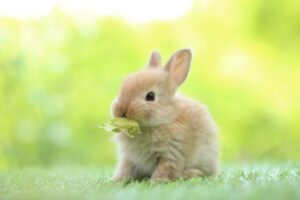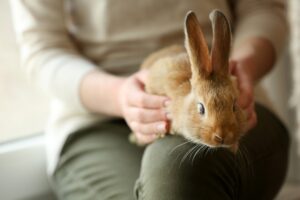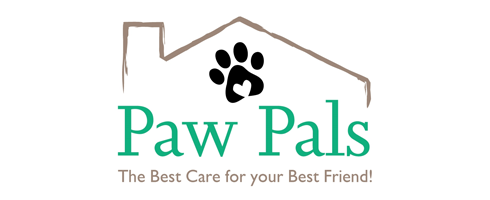Becoming a rabbit owner is an exciting and rewarding experience. With their expressive personalities, adorable features, and playful nature, rabbits make wonderful pets for individuals and families alike. However, many new rabbit owners are surprised to learn that caring for a bunny isn’t as simple as it might seem. Rabbits are not low-maintenance pets—they require daily attention, a balanced diet, mental stimulation, and a safe, clean living space. In fact, ensuring proper care for your rabbit can be as involved as caring for a dog or cat. And when you’re planning to travel or be away from home, finding an experienced pet sitter who understands rabbit care becomes a critical part of your responsibility as a pet parent.
In this comprehensive guide, we’ll walk you through everything new rabbit owners need to know—from bonding and behavior to housing, diet, daily needs, and what to do when you’re away from home.
Why Rabbits Need Daily Attention and Social Interaction

Despite their quiet demeanor, rabbits are highly social animals. In the wild, they live in colonies and constantly interact with others, so it’s no surprise that domestic rabbits thrive on companionship. Rabbits that do not receive enough social interaction can develop behavioral problems, depression, or anxiety.
If your rabbit is a solo pet, you should aim to spend at least three hours a day actively engaging with them. This doesn’t always mean hands-on play; your mere presence, along with gentle interaction, can go a long way. If you’re often busy or away during the day, consider bonding your rabbit with another—though this requires a slow and supervised introduction to prevent aggression.
Activities to Bond with Your Rabbit
Bonding with your rabbit is an important part of helping them feel secure and happy. There are many simple ways to strengthen your connection:
- Provide cardboard tunnels, paper bags, or phone books for digging and playing
- Offer safe chew toys to help them stay mentally stimulated
- Hide treats around their play area for a fun scavenger hunt
- Set up an obstacle course with ramps and boxes
- Follow a routine—including daily feeding and playtime—so your rabbit learns to trust you
Gentle and consistent interaction is especially important for new rabbit owners. Allow your rabbit to approach you on their own terms, and always respect their body language.
Understanding Rabbit Behavior and Handling
One of the most misunderstood aspects of rabbit care is how to handle them. Though they may look cuddly, most rabbits dislike being picked up. As prey animals by nature, being lifted off the ground can make them feel threatened. If your rabbit is uncomfortable when picked up, they may struggle or panic—which can result in serious injuries like a broken spine.
The Right Way to Lift a Rabbit:
- Gently scoop the rabbit by placing one arm around their side
- Support their rear end firmly with your opposite hand
- Hold them close against your chest to help them feel secure and safe
If your rabbit resists being picked up, sit on the floor and let them come to you. Many rabbits prefer having their feet on a solid surface and will appreciate the chance to interact without feeling confined.
Teaching Kids How to Interact with Rabbits:
Young children must be taught to handle rabbits gently. Loud noises, quick movements, or chasing can easily scare a rabbit. Always supervise children during playtime and encourage calm voices and slow, controlled movements when interacting with your furry friend.
Creating a Safe and Comfortable Home for Your Rabbit
A rabbit’s enclosure should be more than just a cage—it’s their sanctuary. Providing a safe, stimulating, and spacious environment is essential for their physical and emotional health.
Ideal Living Spaces:
- Enclosure or exercise pen should be large enough for your rabbit to stretch, hop, and play
- Bunny-proof an area of your home or dedicate a room as a free-roam space
- Keep the enclosure in a quiet, temperature-controlled area away from direct sunlight or loud noises
Choosing Rabbit-Safe Bedding:

All rabbits have unique preferences, but several bedding options are generally safe and comfortable:
- Shredded paper bedding
- Straw or hay (double as bedding and a snack!)
- Recycled paper products
- Soft, washable fleece blankets
Avoid pine or cedar shavings, which can emit harmful fumes that irritate a rabbit’s respiratory system.
Setting Up the Litter Box
Rabbits naturally prefer to eliminate in one place, making them surprisingly easy to litter train. Use a wide, low-entry litter box filled with safe, non-clumping litter such as:
- Recycled paper pellets
- Shredded newspaper
- Hay (placed on top of litter)
Steer clear of clay-based or clumping cat litters, as these can be harmful if ingested.
Feeding Your Rabbit a Balanced Diet
Nutrition is one of the most important aspects of rabbit care. A healthy rabbit’s diet should consist of:
1. Hay
- Should make up about 80% of their diet
- Types include Timothy hay, orchard grass, or oat hay
- Ensures digestion and contributes to dental health
2. Leafy Greens
- Provide nutritional variety and hydration
- Safe greens include romaine lettuce, bok choy, collards, cilantro, parsley, and carrot or beet tops
- Introduce new greens slowly and in moderation
3. Rabbit Pellets
- Choose high-fiber, low-protein pellets without seeds or additives
- Feed in small quantities to avoid obesity
4. Fresh Water
- Always provide fresh water
- Use a spill-proof bowl or water bottle, and clean it frequently
Foods to Avoid
- Iceberg lettuce (contains little nutrition and may cause digestive upset)
- Sugary treats or fruits (only give occasionally)
- Avocado, onions, nuts, and anything processed (all toxic to rabbits)
Allowing Your Rabbit to Roam and Explore
 Providing daily out-of-cage time is vital for your rabbit’s happiness and health. Allowing playtime in a secure, bunny-proofed space helps prevent boredom and gives them needed exercise.
Providing daily out-of-cage time is vital for your rabbit’s happiness and health. Allowing playtime in a secure, bunny-proofed space helps prevent boredom and gives them needed exercise.
Tips for Safe Exploration:
- Cover electrical cords to prevent chewing
- Block off small spaces they could squeeze into
- Provide hiding spots and safe tunnels
- Supervise all outdoor play sessions to protect them from predators or toxic plants
What to Do When You’re Traveling
Rabbits are sensitive animals who can quickly become stressed when their routine changes. Leaving them alone for a long weekend isn’t an option. If you need to travel or be away from home, hiring an experienced pet sitter who understands rabbit behavior and care routines is essential.
A qualified pet sitter can:
- Feed your rabbit fresh hay, greens, and pellets daily
- Refill their water and clean litter boxes regularly
- Spend quality time with your bunny during your absence
- Monitor for signs of illness or behavioral changes
- Provide updates so you can enjoy your trip with peace of mind
Reach Out to Northern Virginia’s Top Pet Sitters
Owning a rabbit is a long-term commitment that demands daily love, attention, and proper care. Rabbits have unique personalities, sensitivities, and preferences—getting to know what makes your rabbit happiest is part of the joy of being a bunny parent.
With a spacious and clean environment, a diet tailored to their needs, and regular companionship, your rabbit can live a fulfilling, happy life. Whether you’re at home or away, ensuring that someone knowledgeable is caring for your pet is vital.
If you’re planning a vacation or need to travel for business, don’t leave your rabbit’s care to chance. Contact Paw Pals Pet Sitting to schedule a trusted, experienced pet sitter who understands how to care for rabbits with compassion and attention to detail.
Your bunny deserves trusted, compassionate care—right in the comfort of their own home. Reach out to Paw Pals Pet Sitting today to learn more about our personalized rabbit care services and book your pet sitter with confidence.


